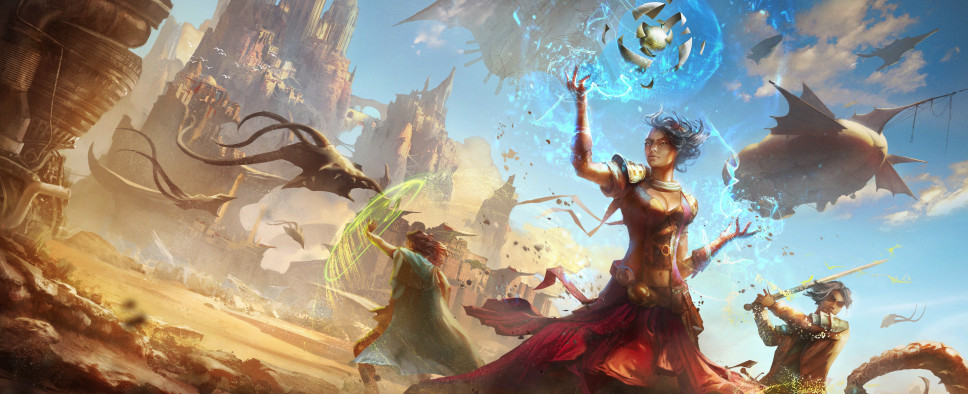George Ziets Interview, Part One
-
Category: News ArchiveHits: 5172

Murnane: To what extent does a writer contribute to the overall story as opposed to filling in the blanks of a story outlined by somebody else?
Ziets: Most projects have a narrative lead who lays out the framework of the story, but multiple writers (and sometimes others) review that story and contribute ideas. Game stories are always evolving.
Early in development, we’ll write multiple drafts of the story, incorporating feedback from many different people. Later, as we start designing the game, we might find out that some parts of the story don’t work so well, or they don’t support the gameplay. Sometimes the game is too big, and it’s running over budget, so we need to make cuts to the story. Those are all opportunities for different writers on the project to make contributions.
On Torment, Colin McComb was the narrative lead, so he came up with the story of the Changing God and the Last Castoff, but it changed many, many times over the course of development. The whole writing team provided fun ideas to improve the story or fix problems, so it’s impossible to say that any one person is entirely responsible for Torment’s narrative. We all left our fingerprints on different parts of the game.
Murnane: Do writers commonly have the opportunity to contribute ideas for quests, locations, characters or NPCs?
Ziets: On some projects, a writer might be hired late in development and told to create a story that ties together a bunch of levels that have already been designed. Most writers don’t love that.
On other projects, a writer might focus only on dialogue, so they don’t contribute much to designing quests or locations. They’re given characters to write, and they find ways to present them in interesting and entertaining ways. (My first job was like this.)
More experienced writers can play a much bigger role on the team. They’ll write the main narrative, plan the major locations, lay out quests, create characters and NPCs, and more. If they want to step into a bigger role, it’s important for writers to develop their game design sensibilities, which makes them much more versatile on a development team.

